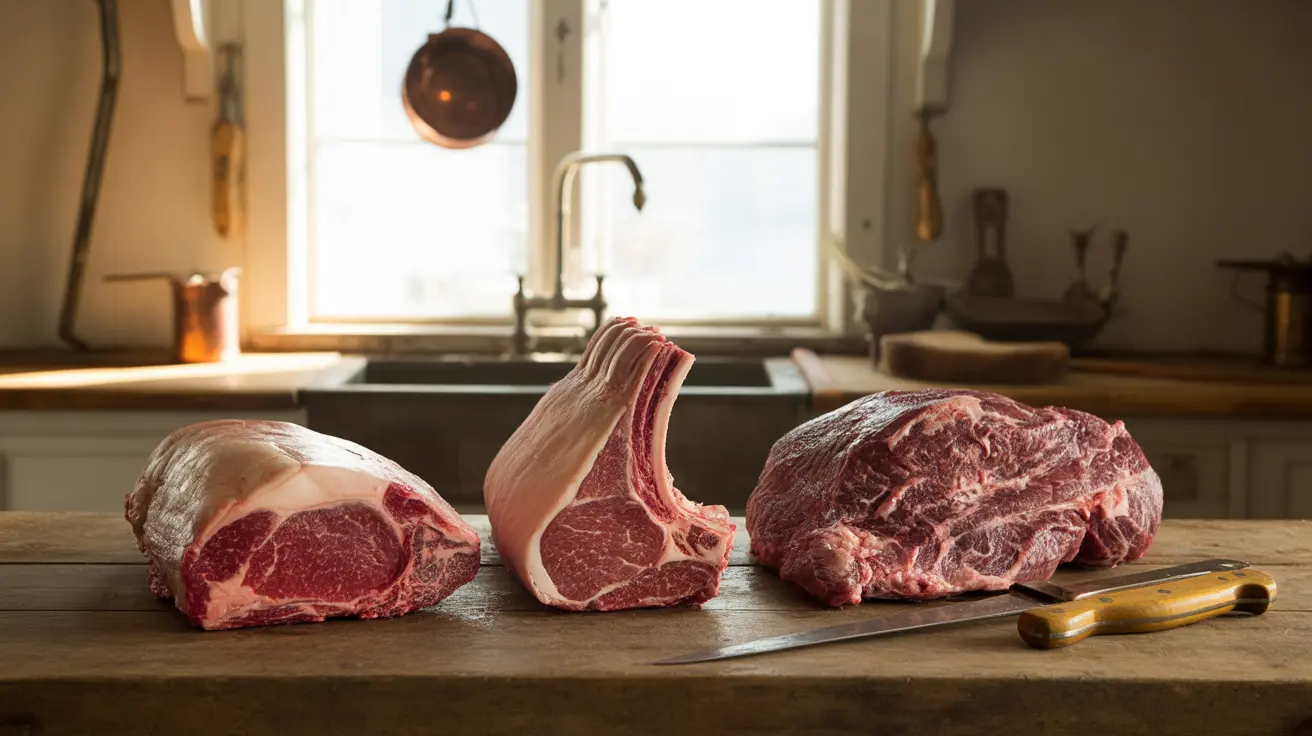As more people seek healthier meat alternatives, the debate between bison and beef has gained significant attention. While both meats offer valuable nutrients, understanding their differences can help you make informed dietary choices that align with your health goals and values.
In this comprehensive comparison, we'll explore how bison and beef stack up against each other in terms of nutrition, health benefits, environmental impact, and culinary applications.
Nutritional Profile: Bison vs Beef
When comparing bison and beef, the nutritional differences are notable. Bison typically contains less fat and fewer calories while maintaining high protein content. A 3.5-ounce (100-gram) serving of cooked bison contains approximately 143 calories and 2.4 grams of fat, compared to beef's 213 calories and 7.5 grams of fat.
Protein and Essential Nutrients
Both meats are excellent sources of protein, with bison providing around 28 grams per serving and beef offering 26 grams. They're also rich in essential nutrients like iron, zinc, and vitamin B12, though bison often has slightly higher concentrations of these minerals.
Heart Health Benefits of Bison
Bison meat offers several advantages for cardiovascular health. Its lower saturated fat content and higher proportion of heart-healthy omega-3 fatty acids make it a better choice for those monitoring their cholesterol levels. Additionally, bison meat contains more anti-inflammatory compounds compared to conventional beef.
Cholesterol Considerations
Bison typically contains less cholesterol than beef, with approximately 82 mg per serving compared to beef's 86 mg. While this difference might seem small, it can be significant for those following a heart-healthy diet.
Farming Practices and Sustainability
Bison farming generally follows more sustainable practices than conventional cattle farming. Most bison are grass-fed and raised without hormones or antibiotics, leading to meat that's not only better for the environment but also potentially healthier for consumers.
Environmental Impact
Bison naturally graze on native grasslands, helping to maintain prairie ecosystems. Their grazing patterns promote biodiversity and soil health, making them an environmentally friendlier choice compared to conventionally raised cattle.
Cooking and Taste Differences
Bison meat has a richer, slightly sweeter flavor than beef, with a finer texture. Due to its lower fat content, bison requires different cooking techniques to prevent it from becoming too dry. It's best served medium-rare to medium and typically cooks faster than beef.
Culinary Tips
When cooking bison, use lower temperatures and reduce cooking times by about 25% compared to beef. The meat's natural flavors shine through with minimal seasoning, making it an excellent choice for grilling, roasting, or making lean ground meat dishes.
Frequently Asked Questions
- Is bison meat healthier than beef in terms of calories, fat, and cholesterol?
Yes, bison meat is generally healthier than beef, containing fewer calories, less fat, and slightly lower cholesterol levels. A 3.5-ounce serving of bison contains about 70 fewer calories and 5 grams less fat than the same amount of beef.
- What are the heart health benefits of choosing bison over beef?
Bison offers superior heart health benefits due to its lower saturated fat content, higher omega-3 fatty acids, and lower cholesterol levels. These factors make it a better choice for maintaining cardiovascular health.
- How does the nutrient content of bison compare to beef, especially regarding protein and iron?
Both meats are excellent sources of protein, with bison containing slightly more (28g vs 26g per serving). Bison also typically has higher concentrations of iron and other essential minerals compared to beef.
- Are grass-fed bison and beef different in sustainability and farming practices?
Yes, bison are almost exclusively grass-fed and raised without hormones or antibiotics, while beef cattle are often grain-finished and may receive growth hormones. Bison farming generally has a lower environmental impact and promotes natural ecosystem maintenance.
- What are the taste and cooking differences between bison and beef meat?
Bison has a richer, slightly sweeter flavor with a finer texture than beef. It requires more careful cooking due to its lower fat content, needing lower temperatures and shorter cooking times to prevent drying out.




